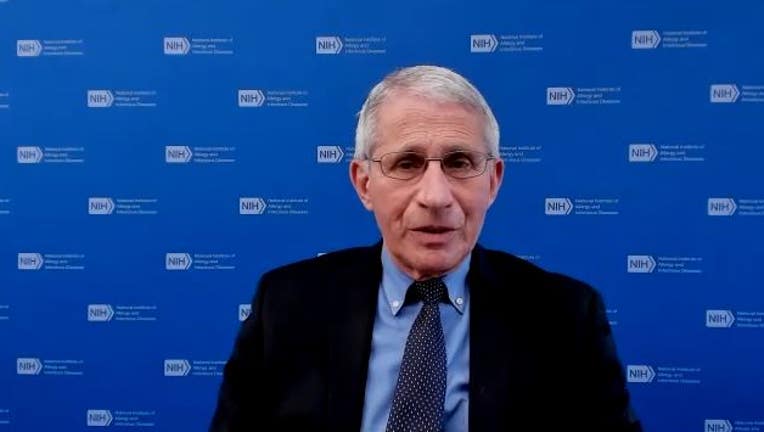Dr. Fauci says COVID-19 pandemic exposed 'undeniable effects of racism'

FILE Photo - Dr. Anthony Fauci speaks with FOX TV Stations about COVID-19 vaccine boosters. (FOX)
ATLANTA (AP) - The immunologist who leads the COVID-19 response in the United States said Sunday that "the undeniable effects of racism" have led to unacceptable health disparities that especially hurt African Americans, Hispanics and Native Americans during the pandemic.
"COVID-19 has shone a bright light on our own society’s failings," Dr. Anthony Fauci said during a graduation ceremony for Emory University.
Speaking by webcast from Washington, Fauci told the graduates in Atlanta that many members of minority groups work in essential jobs where they might be exposed to the coronavirus. He also said they are more likely to become infected if exposed because of medical conditions such as hypertension, chronic lung disease, diabetes or obesity.
"Now, very few of these comorbidities have racial determinants," Fauci said. "Almost all relate to the social determinants of health dating back to disadvantageous conditions that some people of color find themselves in from birth regarding the availability of an adequate diet, access to health care and the undeniable effects of racism in our society."
Fauci said correcting societal wrongs will take a commitment of decades, and he urged the graduates to be part of the solution.
Fauci said that once society returns to "some form of normality," people should not forget that infectious disease has disproportionally hospitalized and killed people of color.
Fauci on Sunday was awarded the Emory University president’s medal. Previous recipients include former President Jimmy Carter, the Dalai Lama and the late U.S. Rep. John Lewis, a civil rights icon. In accepting the award, Fauci denounced the destruction of division.
"Societal divisiveness is counterproductive in a pandemic," Fauci said. "We must not be at odds with each other since the virus is the enemy, not each other."
He praised the graduates for handling the profound disruption of the pandemic.
"Not since the influenza pandemic of 1918 has humanity faced a public health crisis of this magnitude," he said. "Each of you deserves enormous respect for your extraordinary adaptability, resilience and dedication to learning, completing your studies and graduating despite immense difficulties and uncertainties."

